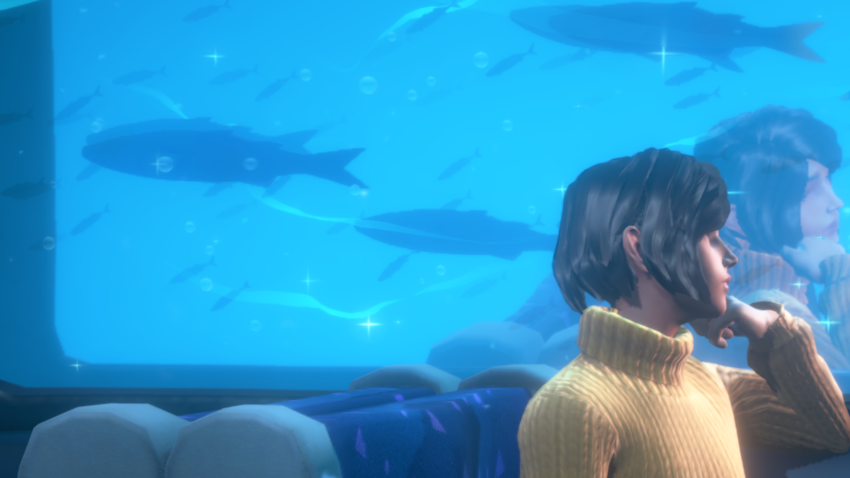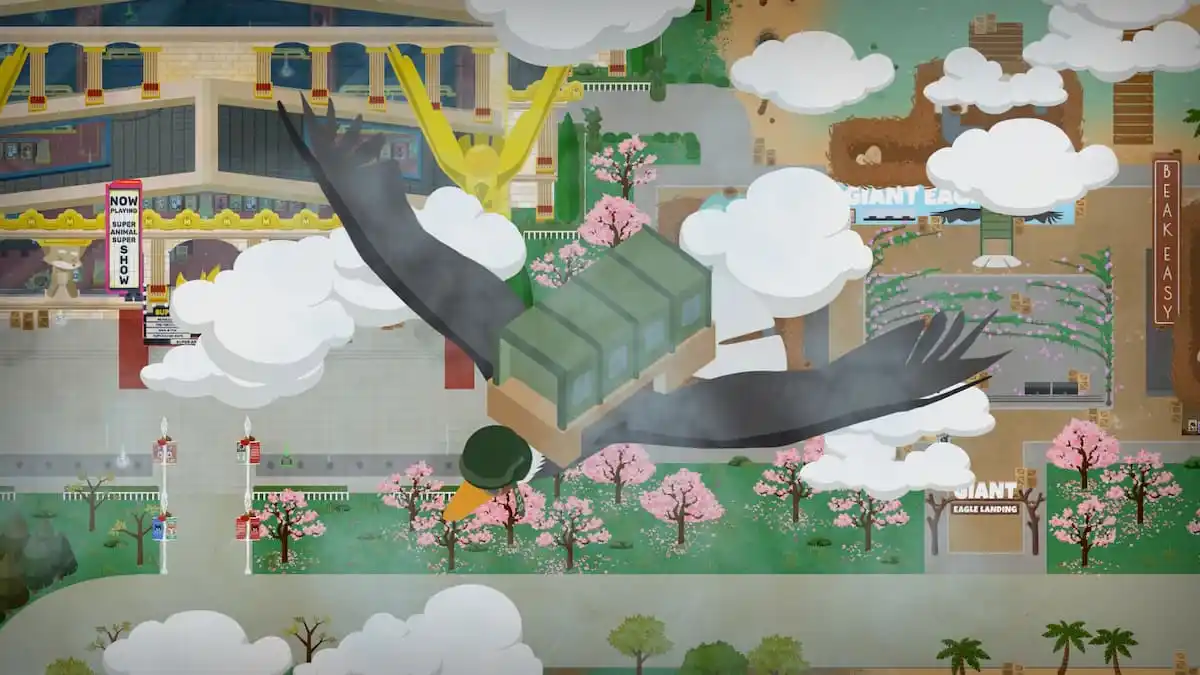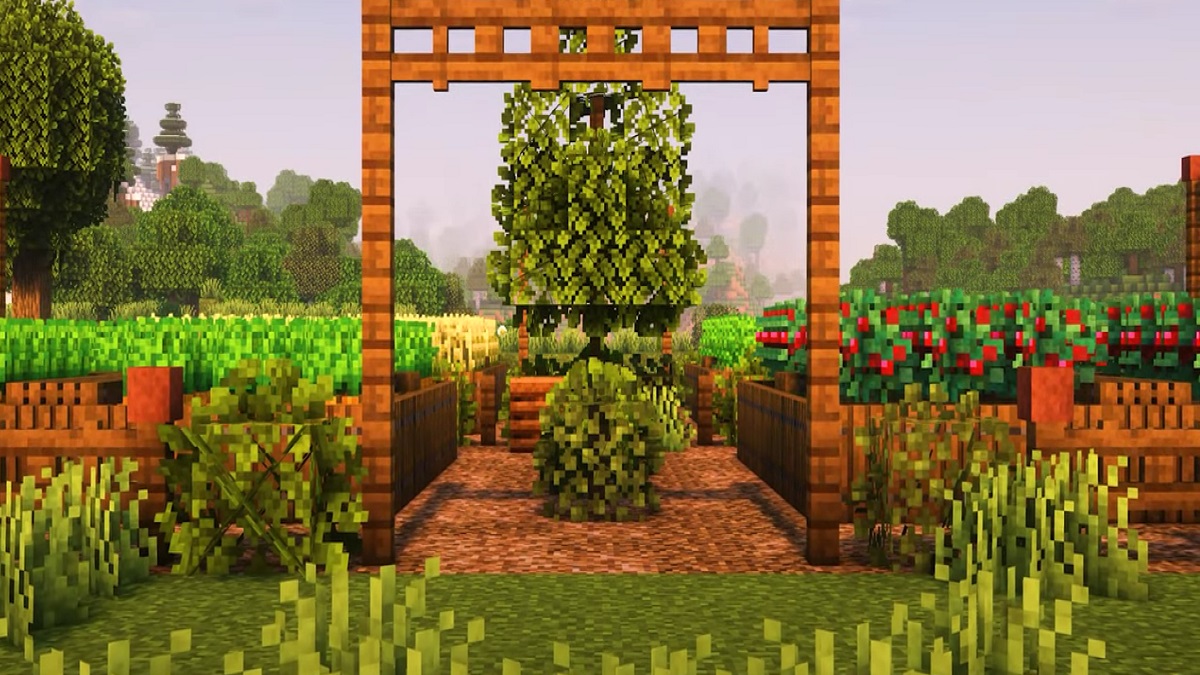I have a confession to make: I haven’t tried my hand at poetry in well over a decade. In high school, I had a pair of pieces published in our annual literary magazine, but I never quite understood why they were accepted. Something about seeking that answer out broke my relationship with poetry for a long time.
Still, I love hearing someone talk about their favorite poem. My partner has this beautiful copy of The Gorgeous Nothings: Emily Dickinson’s Envelope Poems on our coffee table. It’s been taunting me since the day it arrived. Usually, I only interact with it by putting the controller down for the night right next to it. However, this game has been pushing me to pick it up. A Memoir Blue markets itself as “ an interactive poem about a superstar athlete and the all-encompassing love between mother and daughter,” so picking this up was an intimidating but well-spent exercise in reconnecting with a buried fondness of poetry.
As a game, A Memoir Blue is a seemingly bare experience. You’re taking on an abstract role with an incredibly limited set of interactions. Primarily, you’re exploring the memories of a young prolific swimmer named Miriam as she dozes off after dodging a phone call. Moving from scene to scene, you’re tasked with poking at things like the contents of her bag or the cubes in a glass of water on the table in hopes of triggering some sort of shift in the vignette presented to you. For example, the title screen gracefully teaches you the gist of the entire game by having you drag a tape deck under the water. You’re descending from that scene as you uncover Miriam’s memories submerged under a decade of clutter.
A Memoir Blue pulls you into this meditative experience by excising all distraction. You dive into Miriam’s world without much context and the game asks you to pull together her emotional state one psychic sketch at a time. Writing has been replaced with thematic wingdings, speak is a distant pseudo-language, and Miriam herself barely utters a sound. The experience is so natural and engrossing that it’s easy to forget that all you’re really doing as a player is clicking and dragging things around with an almost invisible cursor. You’ll find yourself waiting for the music to swell just right before you tug a line of balloons into place.
A memoir’s blue note
This game evokes a strong, lasting sense of digging through someone else’s memories. There’s a particular state of being many of us have entered while cleaning out a closet. The trick A Memoir Blue pulls off is similar to that state of mind. Time and again you’re presented with a thing to prod at until something clicks into place.
Gentle music is perfectly choreographed to your brief stint through Miriam’s memory, the mishmash of representational styles work in concert with each other in several moments. I’ll probably never forget dragging a beautiful sunset into view while lighting up a billboard off in the distance, but all of these evocative flourishes rely on a well-realized sense of physicality. For Miriam, just as for us, pamphlets from road trips or smashed pennies are the keys to unlocking stories we’ve forgotten. By leaning on the physicality of Miriam’s memories, A Memoir Blue convincingly draws us into her internal world. The snap of the eject button on Miriam’s tape deck, the inertia of a merry-go-round, and the bright, abrasive flash of a reporter’s camera all create a convincing dreamscape of memories.

The physicality of this game serves its purpose well. It allows you to bask in the minute glory of dragging objects around in these scenes.
Drag down the radio to start.
Drag down the ice cubes to pass the time.
Drag down the sun to drift off to sleep.
Drag down the furniture to throw your little tantrum.
Dragged down until we reach the bottom.
You’re dragged down further and further until the game flips the delve into this stranger’s — Miriam’s— memories on its head and recontextualizes your one mechanic in a simple, yet effective flick of the wrist.
The verdict
If you’re the kind of person that seeks out titles like A Memoir Blue, then I’m confident in saying you’re going to enjoy it. It’s simple and sweet and it fits right into a lull between bigger, less abstract titles. It’s also an excellent exercise in upturning your conception of poetry and game mechanics. Poetry here is expressed with song and scenery rather than words and punctuation. We can look at the repetition of a single mechanic as a stand-in for rhyme. Instead of conveying tones and themes through words, our helpless interaction with Miriam’s emotions speak volumes.
If this isn’t your usual romp and you find yourself on the fence right now, then I’d ask you to approach it from the same angle I did. There’s a great deal of fun to be found in its simplicity. A Memoir Blue gave me time to think and reconnect with something I thought maybe I’d forgotten how to engage with. It also gave me the chance to reassess what I think of when I think of poetry. It’s also incredibly short. If this review reaches you on a quiet night in, this is the perfect way to spend a handful of pensive hours.
Regardless, A Memoir Blue does an excellent job of living up to its poetic aspirations without alienating anyone willing to try something new. It’s short and complete, and I was entertained in ways I didn’t think I would be when I first dove in. Like any good poem it lends itself to thoughtful re-visitation, and I can’t wait for the next rainy afternoon in Miriam’s mind.
Final Score:
9 / 10
| + | An interesting and emotional delve into earnest portrayals of memory |
| + | Short enough to fit into a sitting or two |
| + | Tosses a bone to achievement hunters wandering out of their comfort zones |
| – | Not enough meat on its bones for a particularly ravenous player |
Gamepur team received a PC code for the purpose of this review.










Published: Mar 25, 2022 03:08 pm